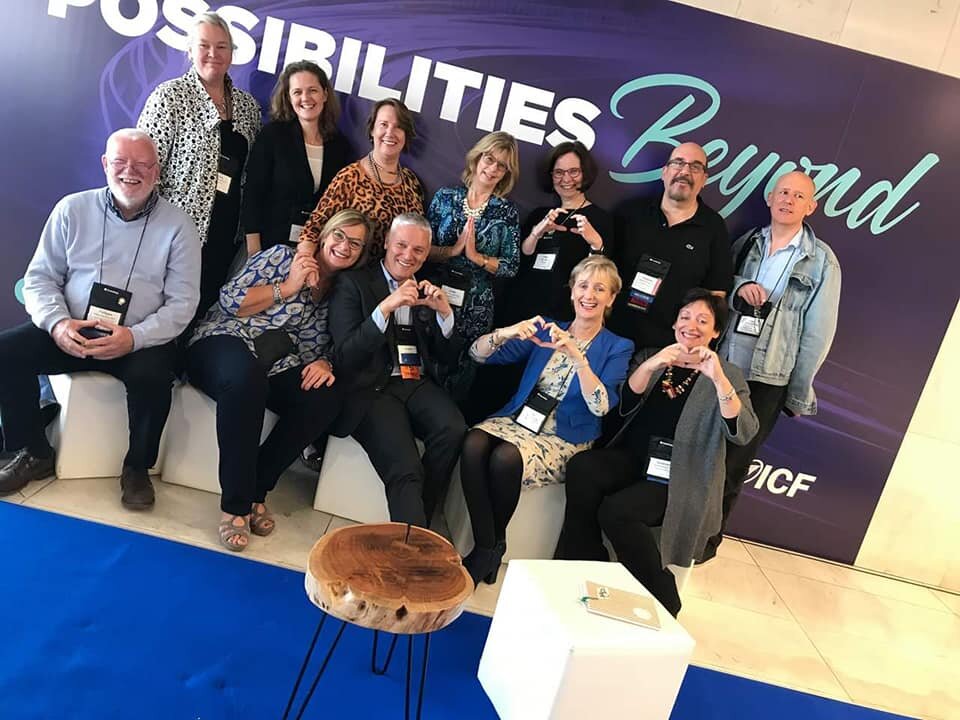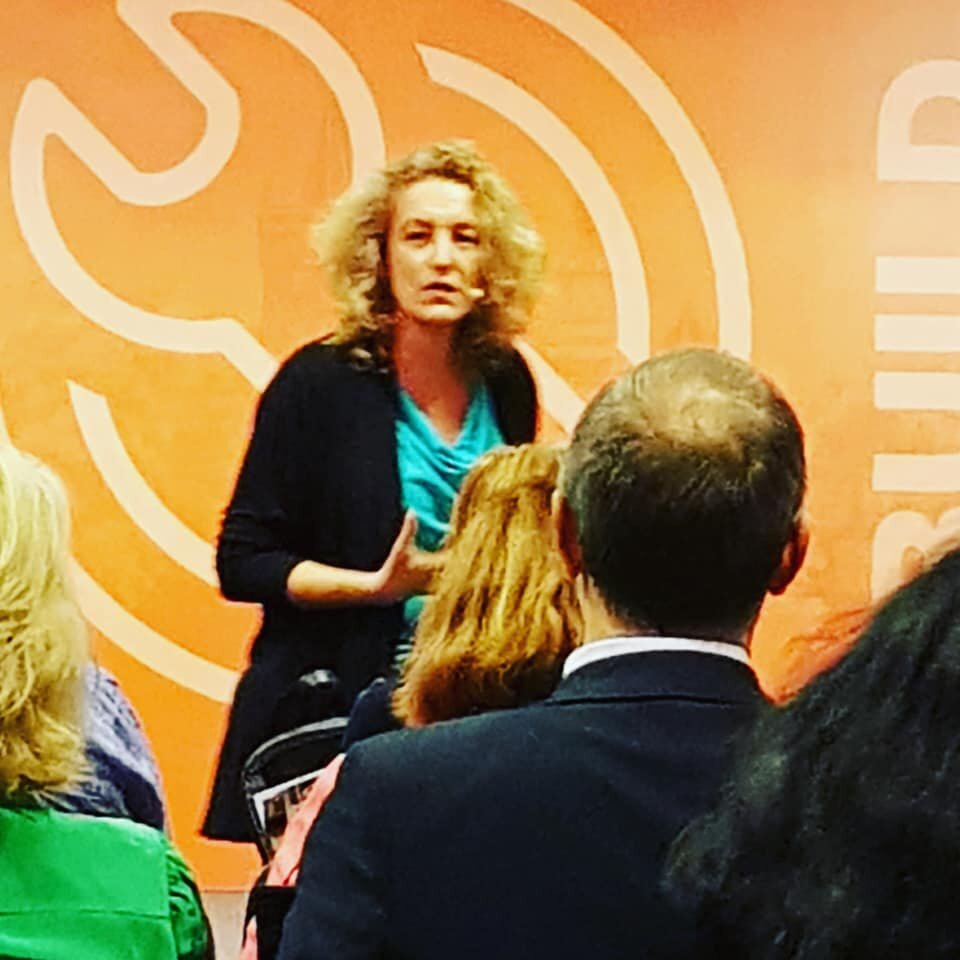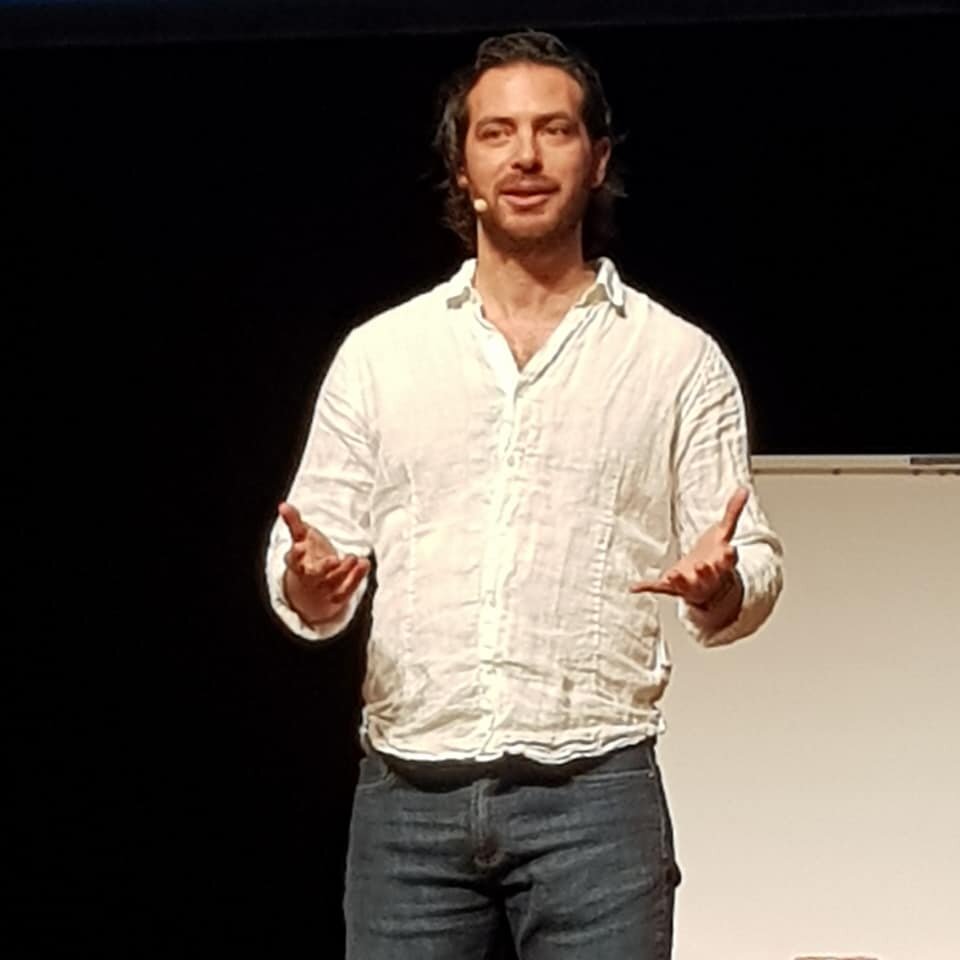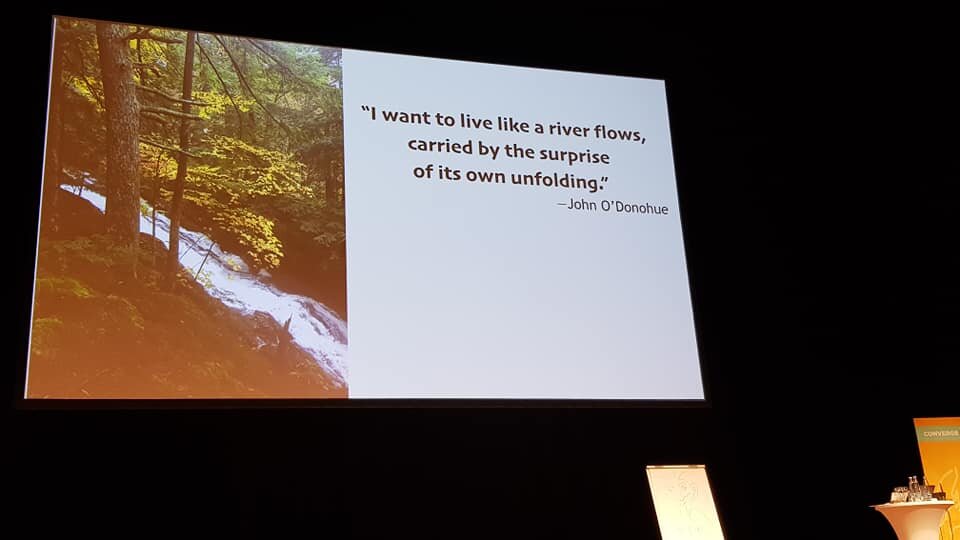As day three of the conference is coming in we are starting to get to know each other and familiar faces show up everywhere. It is fascinating to see how quickly people get together and form a sense of belonging. At breakfast I got invited to a German coach’s breakfast table and ended up in interesting conversation on development of alternative democratic political systems. You never know what treasures of experience is hidden in the person in front of you. If you are curious about what other ways of organizing are being tested around Europe, have a look at her website Politics reinvented
This second morning of conference is usually a bit slow, people drop in right before sessions start which means less networking and a perfect opportunity to walk by the exhibitor tables and get a good look at what they are offering. Surprisingly enough they are seldom at their tables at that hour, most of them do leave their material behind, which gives me a chance to see what they are showcasing and make my own picks on who I might want to talk to. I honestly don’t understand though how come they are not in place half an hour before program start, but I really don’t mind not being sold to.
First session today was a familiar topic, “the inner playground” where Debra Gerardi gave room to play and an overview of the importance of playing and keeping playfulness in our lives. Sitting there listening to the presenter explaining all the powerful things that happen when we play it was very familiar to an old pre-school teacher to me. My real awakening in this session came in one of the exercises when a coach next to me suddenly said “this is all well but I can’t do this with my executive clients, that’s not what they are coming to coaching for”. My genuine surprise reminded me that my strengths are mine, not general knowledge of all coaches. I often include playful approaches in coaching on all levels. When entering our playful mode, we get access to new perspectives and can move further. Playfulness can come to expression in a “build your obstacles” or in “draw it” or whatever comes to mind that could move us. To me it comes naturally as ways of exploring and as with all questions, exercises and suggestions from me the client chooses, yes, no or not really like that, I want like this. Reminds me of how important conversations on methods and techniques are to keep us from taking things for granted.
In a short 30-minute sessions Lisa Bloom shared the “The five stories successful leaders tell. Do you have your stories under control? The ones others tell about you? The ones you are telling yourself? The story you tell them and The story you are? The story you use? If not get yourself a good coach and get them sorted out, they are important to your success.
In a break time conversation on coaching beyond, global board members opened up to talk about the future of coaching. Two paths emerged among us: focus on effect of technology development and the role of personal meetings within that, balancing people and technology. Or focus on the spiritual intelligence development rising in the world. Not that they are either or, they will probably be intertwined although I have to confess I am not sure I understand the Balance technology vs people thing. What is there to balance? I can see a lot of different challenges possibly emerging but balance them against each other? Maybe that is a bigger issue if you feel threatened bu the coaching apps that are popping up her and there. To me tech is options for tools and support that makes life easier and yes, for simple question flows a robot can do the job and make coaching accessible at low cost everywhere. But for the connected, present conversations that make sudden leaps, weigh in multiple aspects of behavior, speech, expressions, breathing and energy there is a long way until a robot takes my place and even when it does there will probably still be that wish for being seen and recognized in ones struggle by someone in a personal professional conversation.
Zoran Todorovic invited us in his session to have a look at the area of influence and development beyond ego in a front edge session on coaching the collective connectedness. Here we get closer to what I believe is the challenge as a future coach. To expand my knowledge and understanding of synchronicity, sense of belonging and connecting to values, higher purpose and the collective we as we move out of individual thinking and co-create, co-work and co-exist.
In “The 21 skills of spiritually intelligent people” Simon Blackhall gave an impactful introduction to the new concept of intelligence. 25 years ago we started to talk about EQ and didn’t really know what to think of it. Now we have it as an established narrative of some of our human competencies and Spiritual intelligence is the new way of explaining what is not yet explained although we all usually have an intuitive understand of it. We have common ideas on what a spiritual leader can be and what we expect from them. Simon gave us an overview of the work of Cindy Wiggleworth and yet another book was added to my list for upcoming reading.
““Hold the space of truth and light in which others can come forth.””
Last session of the day turned out to be a calming reminder of the importance of presence. With yourself and with the client. The non-verbal connectedness that occurs and that communicates in itself. Through practical exercises guided by Aboodi Shabi we listened in on what we can notice without any other communication than just being and connecting in presence
A bit of a break, time to get an evening meal and then the party begins. Dessert and dance, networking and continued exchange of what we have heard in our sessions, there is really no better way to shake the conference stiffness out of weary sitting muscles than a few hours of dancing, especially when nobody cares of appearance. Coaches of all ages and from all parts of the world share moves, dance like nobody’s watching and enjoy each other’s company.







